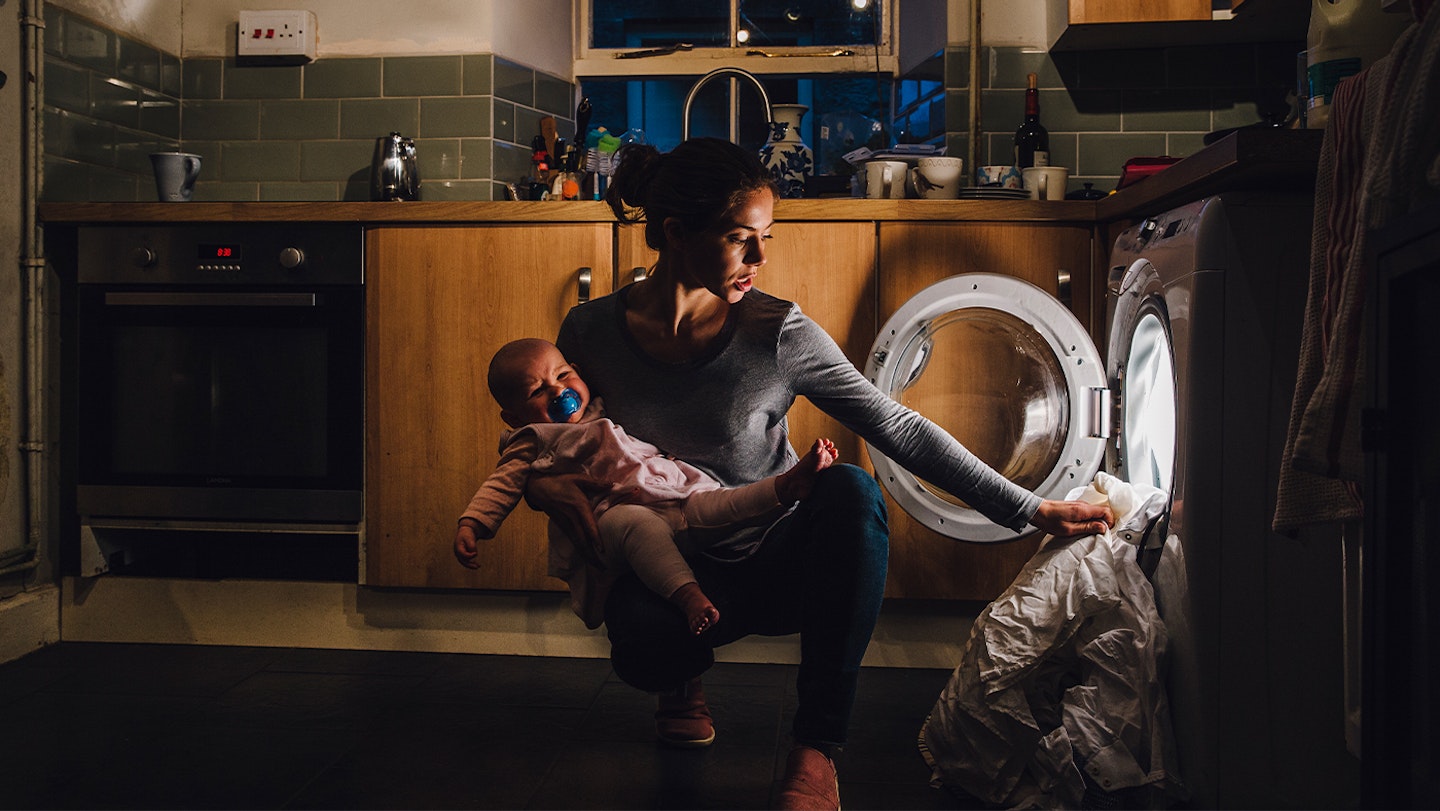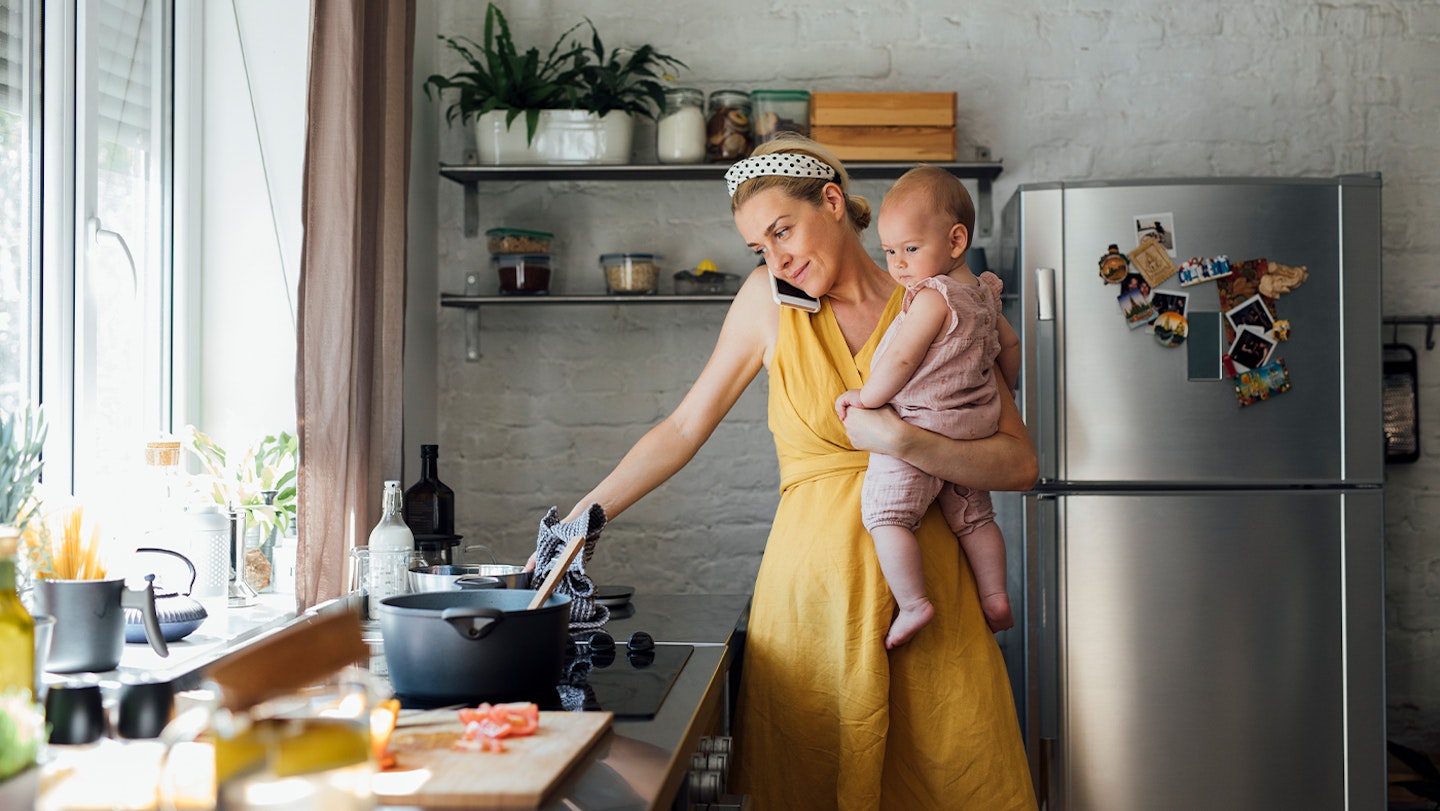“Watch the baby for a sec, I haven’t been to the loo yet today.”, “Will you do the night feed tonight, I’m exhausted”, “Can you babysit while I go food shopping?”, If this is something you have said to your partner/husband/significant other in the last 3 days then congratulations, YOU ARE A DEFAULT PARENT!
What is a default parent?
By definition, a default parent is the caregiver the child depends on most. Assuming that there are two parents present, the default parent is more likely to carry the bigger load in parenting. Life Coach and Boundaries Expert, Michelle Elman says "the default parent is the parent the children tend to go to for comfort, support or even requests around the home whether it's looking for an item or wanting permission. It is usually the parent that is seen as the decision maker and as a result, is the person who bears the brunt of the emotional labour that comes with running a home."
In most cases, this is us, Mums! You may find your role particularly challenging in the first 6 months especially if you are breastfeeding or just generally playing an active role in your child’s life. You know what time they wake up, where everything is and what they have for lunch. But where is Dad in all of this? As challenging as it may be, it always seems to fall on us as mothers, right?
What can lead to being a default parent?
Before falling pregnant my husband and I worked together, lived together, and partied together. There was not a lot we didn’t do together. Some may find this strange, but we were genuinely joined at the hip. We loved it, we worked as a team and never argued as we always seemed to find solutions, not problems.
Fast forward 9 months and BOOM, the entire dynamic of our relationship changed. There were lots of problems, no solutions. I was mentally and physically drained. Emotional, teary, and struggling to cope. The once ‘happily ever after’ marriage was now pistols at dawn or pistols at the 3AM night feed, should I say. We lost touch, we lost the team spirit, we were resentful of each other, unrecognisable in ourselves and why is that you may ask?
… Because I was a one-man band.
How default parenting can affect mothers predominantly
I was ‘doing it all’. Cleaning, cooking, washing, feeding, driving, awake all night and awake all day. Whilst my husband was back at work ‘providing’, I was keeping all the other plates spinning, all whilst returning to work myself 2 weeks post-partum. I'm sure anyone reading this can relate to the naivety you tell yourself whilst pregnant that ‘my life won’t change’ yet it changes in ways you couldn’t even think possible. All for your little bundle of joy that simply exists, eats, sleeps, and repeats.
But why is it always mums? "Largely due to the patriarchy and the responsibility for child-rearing seen as still a feminine duty." Says Michelle. "It is the same reason why men get praised for looking after their kids but women are just expected to. In some homes, the mum becomes the default parent because they are the one that is seen as more emotionally available and in others, it's because they are more physically available as the other parent might be out and working more. Without it being addressed and making a conscious effort to change this dynamic, it will tend to be the mother because of embedded messaging from society."

So, when it comes to being the default parent, can we even help it? The kids always want us regardless. Is that because we are nurturers by nature or because they left our bodies not even a year ago? Surely this is to be expected. Or is it ingrained in us from childhood because society says that’s what mothers should do? We don’t have a choice in the matter. For centuries, women have taken the role of the ‘default parent’ without batting an eyelid, all whilst the father goes out to provide for his family and does not have to participate in any of the ‘home’ stuff as that’s ‘not his job’. He has been at work all day after all! Various research, including a 2021 study published in the Journal of GLBT Family Studies, has shown that same-sex couples divide domestic labour and childcare more equally than different-sex couples, prompting questions about default parent syndrome’s relationship to heteronormative gender stereotyping. Well, women in heterosexual relationships have come a long way since then, as have I. After 6 weeks, I made my decision. I was not ‘defaulting parenting’ any longer.
Tips for navigating default parenting.
One day my husband returned from work to a broken woman, not even a shadow of the hard-nosed, entrepreneurial, sparky individual I had always been. It was that day everything changed. What did it you wonder?... I communicated! I told him exactly how I was feeling. Overwhelmed, stressed, and frustrated. Funny that really, why didn’t I do it sooner? He immediately understood. The following morning, he had found us a cleaner online and an air fryer arrived from Amazon.
Michelle agrees that speaking to your partner about it is the most important things to do. "It's often about looking at the unseen and unspoken about things like how each parent responds to the child when they ask for something." She explains. "Is there is a reason why the children are coming to one and not the other? Look at why they have come to view one as the 'decision-maker' or question whether it is simply occurring out of habit. In order to change the dynamic, you need to consciously step back and create space for the other parent to step up. This could be re-directing the kids when they ask you for something and saying 'go ask your father' so they start to learn that it is a more balanced household. In order to do this though, the other partner needs to be involved and recognise what is happening." Michelle says.
Within days, I was a changed woman. All because I surrendered and asked for help. I let go of societal pre-judgements and told myself what was important, and that was my own mental health and well-being. Happy Mum, Happy Baby! Since then, our relationship has been back on its way to how it was before but better. Most importantly, communication is key in addressing how you are feeling. Without this, none of my tips will be achievable. You and your partner need to openly discuss their roles, expectations, and any feelings of imbalance. We are working as a team; my husband knows his little ‘jobs’ just as I have mine and it works swimmingly. My biggest tip on sharing the load would be to ensure each partner has a job. Even as simple as ‘putting the bins out’, will ALWAYS be my husband’s job and my job will be to do the online food shop. We are both responsible for aspects of our home and lives to keep the cogs turning and working as a team! Commitment to the cause is equally important. Both of you must be dedicated to maintaining these changes over time. This may require patience and perseverance as everyone adjusts to the new dynamic, but will be absolutely worth it in the long run. Please note this is not a quick fix. This takes time and effort from both parties to really make it ‘work’. Also note, that what works for you as a couple may not work for everyone. Hence the importance of really ironing things out to ensure your needs are being met, specifically for you and your family. I can officially say, that by letting go of the control, I’ve in fact regained control of my life and everything has started to fall back into place. Except for my to-do lists, I still can’t live without a to-do list!

Michelle's expert tips for sharing the parenting load
- One of the rules that works well in a household is that when the kids call out for 'mum', they both respond regardless of the word used.
- Aways back up each other, but particularly the mum, so one parent isn't seen as the strict one and the other seen as the fun one. The kids then learn they will get the same answer from both.
- Sit down and outline all the duties, even the invisible ones or the unseen emotional labour and divide it out more equally where one person is not just taking responsibility for the item but the mental preparation so it can lighten the load on the parent who has more emotional labour so it is one task they don't even have to think about. An example of this is if the father is responsible for taking the kids to swimming lessons, it's also about calling the teacher and cancelling when they are ill, preparing their clothes and making sure their swim stuff is in their bag on the right day, paying the swim teacher. Every aspect of swimming has to become their responsibility too, not just the driving them there and back.
About the expert
Michelle Elman began her career as a five-board accredited life coach when she established Mindset For Life in 2014. A qualified Master Neuro-Linguistic Programming (NLP) Practitioner, Master NLP Coach, Time Line Therapy™ Master Practitioner and Master Hypnotherapist, Michelle also has a degree in Psychology.
Holly Connolly is a female boss, mum to Cici, and the big sister you never knew you needed! She’s dishing out advice and hilarious anecdotes on social media, racking up over 15 million views. As the co-host of parenting podcast "Oh Baby!", Holly shares her wild ride through motherhood, marriage, business, and everyday chaos. Her mission? To help women laugh through the joys and challenges of parenthood and remind them they’re never alone in this crazy world.
